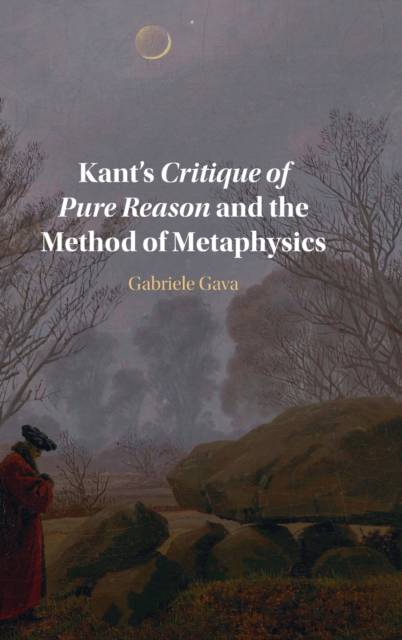
- Afhalen na 1 uur in een winkel met voorraad
- Gratis thuislevering in België vanaf € 30
- Ruim aanbod met 7 miljoen producten
- Afhalen na 1 uur in een winkel met voorraad
- Gratis thuislevering in België vanaf € 30
- Ruim aanbod met 7 miljoen producten
Zoeken
€ 158,95
+ 317 punten
Omschrijving
In two often neglected passages of the Critique of Pure Reason, Kant submits that the Critique is a 'treatise' or a 'doctrine of method'. These passages are puzzling because the Critique is only cursorily concerned with identifying adequate procedures of argument for philosophy. In this book, Gabriele Gava argues that these passages point out that the Critique is the doctrine of method of metaphysics. Doctrines of method have the task of showing that a given science is indeed a science because it possesses 'architectonic unity' - which happens when it realizes the 'idea' of a science. According to Gava's novel approach, the Critique establishes that metaphysics is capable of this unity, and his reading of the Critique from this perspective not only illuminates the central role of the Transcendental Doctrine of Method within it, but also clarifies the relationship between the different parts of the work.
Specificaties
Betrokkenen
- Auteur(s):
- Uitgeverij:
Inhoud
- Aantal bladzijden:
- 300
- Taal:
- Engels
Eigenschappen
- Productcode (EAN):
- 9781009172103
- Verschijningsdatum:
- 25/05/2023
- Uitvoering:
- Hardcover
- Formaat:
- Genaaid
- Afmetingen:
- 152 mm x 229 mm
- Gewicht:
- 566 g

Alleen bij Standaard Boekhandel
+ 317 punten op je klantenkaart van Standaard Boekhandel
Beoordelingen
We publiceren alleen reviews die voldoen aan de voorwaarden voor reviews. Bekijk onze voorwaarden voor reviews.








